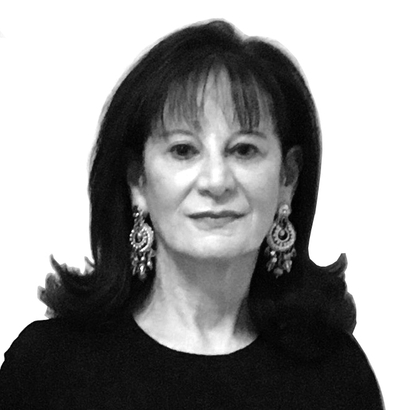The past few years have battered quite a lot of boldfaced names down to size. Arriving just in time to help celebrate E. Jean Carroll’s victory over Donald Trump, Helen Schulman’s latest novel is a reminder that Harvey Weinstein’s downfall was the very least he deserved.
Lucky Dogs gets at Weinstein the rapist and gaslighter, and the system that abetted him, without giving his character a name. That Schulman leaves to one of the two women on opposite sides of the unredeemable behavior that kicks the story into gear.
Meredith Montgomery—nickname “Merry,” her last name originally a resonant Monroe—is a young actress hiding out in Paris after her attempt to expose what “the Rug,” as she calls him, did to her is sent off the rails. The other’s name is Nina—or is it?—an enigmatic women’s-rights activist—or is she?—whom Merry encounters as she’s fueling up on ice cream at an out-of-the-way Berthillon stand on the Île Saint-Louis.
Theirs is a clash of traumas, played out against the echo chamber of the Internet. Schulman made “the multiverse” the focus of her last novel, Come with Me, and she’s not done with that hall of mirrors yet.
What is fiction but the oldest form of virtual reality? Schulman does something especially brave with her storytelling here. In an afterword, she acknowledges its nonfiction sources, including Ronan Farrow’s New Yorker reporting and Megan Twohey and Jodi Kantor’s for The New York Times, and also a Travel & Leisure trip she made to Bosnia, where the novel takes one of its more hellish turns.
Lucky Dogs gets at Harvey Weinstein the rapist and gaslighter, and the system that abetted him, without giving his character a name.
Rather than detracting from her imaginative accomplishment, this for-the-recordkeeping underscores Schulman’s gifts as a writer, one of those daughters of Didion—Emma Cline, who, as it happens, has also fictionalized Weinstein, is another—capable of fitting a world into a short sentence, and a person into a few sharply chosen words.
At home with the power of language, Schulman depicts some nauseatingly key moments in contemporary history and around an unquiet globe. A “fugitive in Paris, cursed by beauty” could as easily mean the city as the pretty starlet, since Schulman’s precision-tool vision allows for the darker aspects of the City of Light. Nina comes of age in a divided Israel, the Promised Land a repressive state well on its way to becoming “the next South Africa.”
Merry has been trying to write a book, a tell-all Hollywood memoir about the sexual abuse she has suffered and the ghosts of dysfunction clouding her past—a mother in love with madness, a serially absent father, a red-carpet existence directed at disaster. Yet she applies a comic timing to raking agents and lawyers, tabloids and therapies, over the coals, swimming valiantly upstream against a host of sharks.
Unfortunately, Nina appears to work for an organization of ex–Mossad agents gone rogue, well paid by those with secrets to keep and accusers to silence. Merry is an actress with a liking for the truth. Nina had wanted to be an actress but became a spy.
As each stabs at outwitting the other, Merry, back home in Los Angeles, experiences, in her hammock in Venice Beach, “an uncharacteristically clear night, considering the red embers on the cliffs of Malibu. Lying on my back that way, I could make out the Big Dipper and what I always thought of as the Westinghouse W, but was maybe just Orion’s Belt? The ocean wind chased the smoke, skirts hiked, up into the hills.”
Nina has learned early on that flames can do more than lick at paradise, the Sarajevo of her childhood—its “sky full of minarets, like ballerinas frozen mid-spin on point, church spires yearning to reach closer to God”—bursting into deadly sectarian flame. Whether the horrors of the Bosnian war give her the moral high ground is a question Schulman explores as the tally of the Rug’s unforgivable actions mounts, along with the degree to which Nina is complicit in them.
Merry and Nina’s ultimate standoff occurs—where else?—in the artificial wonderland of Florida. Day-Glo putty in Schulman’s hands, it calls a time-out on the insistent realities she has created elsewhere. But it can’t outrun them entirely. Schulman is too perceptive a writer for that, and the lives she has pulled from the headlines too unfinished to pass up.

Celia McGee is a New York–based arts-and-culture reporter. She writes regularly about books for The New York Times and other publications


